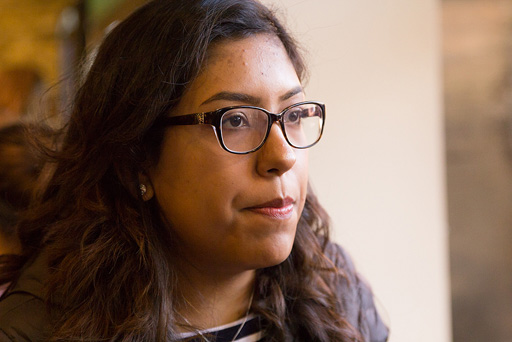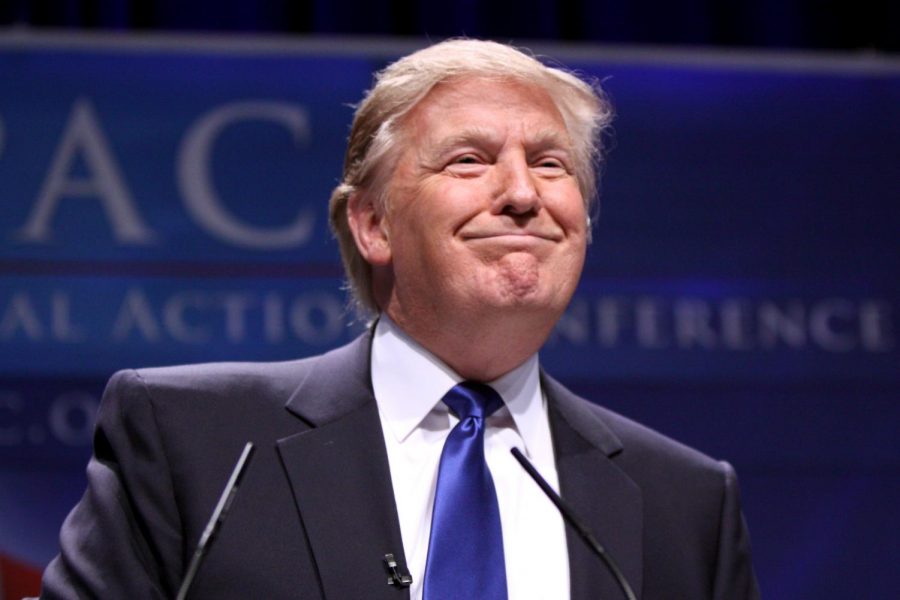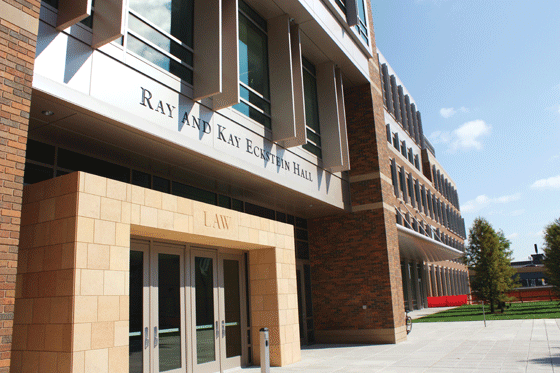President Donald Trump’s plan to build a wall between the United States and Mexico has been a controversial topic during his first month in office, with heated viewpoints from both sides of the political aisle. Two Marquette students shared their stories about being on the receiving end of what they believe to be an effect of Trump’s anti-immigration rhetoric.
Marychel Figueroa, a Mexican-American and sophomore in the College of Arts & Sciences, recalled a time when she experienced hostility on campus.
In one of Figueroa’s criminology classes, the class was watching a documentary about immigrants. After the documentary ended, a student turned around and said to her, “This is why we need more walls.”
Figueroa said she felt a sense of shock after hearing the comment and remained silent because she wanted to avoid conflict. “To me, personally, it is very upsetting,” she said.
Figueroa also said she noticed that students avoid sitting next to her in class because of her color. “It is something that I am used to because I attended a predominately white high school,” she said.
Francisco Manzano-Arechiga, a sophomore in the College of Communication, said he is used to hearing racist comments and slurs on campus, especially during intramural soccer on campus with his Hispanic friends.
“While playing intramural soccer on a team full of Hispanics, we are usually called ‘wetbacks,’ ‘Mexis’ or ‘illegals,'” Manzano-Arechiga said in an email.
Manzano-Arechiga also shared another story where he heard unfriendly talk from students. He was walking down the sidewalk on his way to class when he heard two girls talking about how they were excited that the wall was going to be built because Mexicans will finally be leaving the country.
“At first I was speechless,” Manzano-Arechiga said. “It was so sad how I go to the same university as people who think people like me, innocent and obedient to the law, should leave ‘their’ country.”
Manzano-Arechiga said he would not be directly affected, but can relate to how some families are feeling. “We didn’t feel as impacted by the Donald Trump victory as much as other families did that we know, because our entire family is legal,” he said. “We feel the pain of those families due to (my family) being in that position a couple of years back, not knowing when we were getting our papers, or worse, when we were getting deported.”
Figueroa would not be directly affected either. She said immigration is part of what makes the United States a special place.
“Over centuries, America has been a melting pot, where different cultures have come together,” Figueroa said. “This country has been built up by immigrants, which have made it one of the greatest countries in the world.”
After Trump’s travel ban on seven majority-Muslim countries, the Marquette administration released a statement about its commitment to ensuring that Marquette is a community open to people from a wide variety of backgrounds. “We stand with our international students and any other student whose family is impacted by this evolving situation,” the statement said.
The two students had differing views on Marquette’s statement. Figueroa said she found comfort in it. “Marquette does a great job of protecting their students,” she said.
Manzano-Arechiga said he believes more could be done. “I am shocked at the fact that President Lovell hasn’t said or done anything to talk to those Hispanics who have been victims like me,” Manzano-Arechiga said. President Lovell releases a letter once in a while but it doesn’t change anything, he just does that to ‘show’ his support. They usually just release a statement, but it doesn’t help at all, and, to me, it seems like they don’t even care.”






